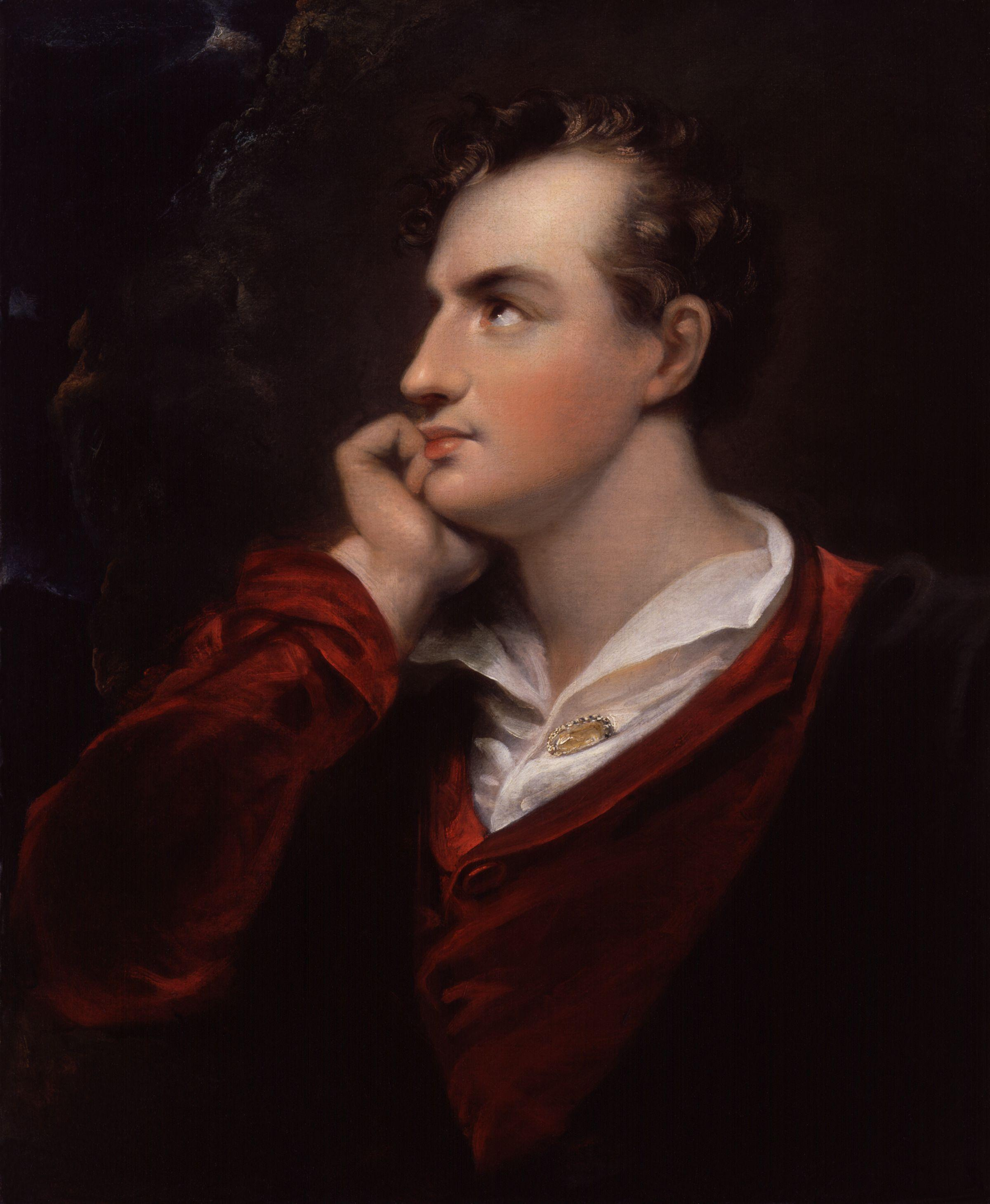
George Gordon Byron frasi celebri
Frasi sull'amore di George Gordon Byron
Origine: Da So we'll go no more a-roving, in Poesie, 1817
Origine: Citato in Tomba di Giulietta http://www.verona.com/index.cfm?Page=Guida§ion=luoghi&id=177, Notiziario BPV, numero 2, anno 1995.
Frasi sulla vita di George Gordon Byron
Don Giovanni
Origine: Citato in Elena Spagnol, Citazioni, Garzanti, 2003.
Origine: Da Il sogno, capitolo I
George Gordon Byron Frasi e Citazioni
“Il ricordo del piacere non è più piacere. Il ricordo del dolore è ancora dolore.”
Origine: Da Marin Faliero doge di Venezia
“Chi ha da fare non ha tempo per le lacrime.”
Origine: Da I due Foscari, Atto IV, Scena 1
“Oh Roma! mia patria! città dell'anima!”
IV canto
Il pellegrinaggio del giovane Aroldo
“Il "buon tempo andato"… il tempo è sempre buono quand'è andato.”
Origine: Da L'età del bronzo
“Non v'è nulla, senza dubbio, che calmi lo spirito come il rum e la vera religione.”
Origine: Citato in Focus, n. 94, p. 168.
canto IV, st. 1
Il pellegrinaggio del giovane Aroldo
“Più riposo non arreca il sonno che il piacere più non sazia.”
libro Il corsaro
Un vaso d'alabastro illuminato dall'interno
Origine: Citato in Anthony Clifford Grayling, Il significato delle cose
“Nello sport puoi scegliere tra il piacere della vittoria e il piacere della sconfitta.”
Origine: Citato in Marco Pastonesi e Giorgio Terruzzi, Palla lunga e pedalare, Dalai Editore, 1992, p. 100, ISBN 88-8598-826-2.
Origine: Citato in Kay Redfield Jamison, Toccato dal fuoco, traduzione di A. Serra, TEA, 2009, cap. 1, p. 18.
Origine: Citato in André Maurois, La prima "Lady" stregata da Byron
“Il diavolo non ha al suo arco frecce che vadano dritto al cuore più di una bella voce.”
Origine: Citato in Leggendo qua e là..., La settimana enigmistica, N. 4370, p. 4.
Un vaso d'alabastro illuminato dall'interno
Origine: Da A Thomas Moore, luglio 1817, in Pezzi domestici e altre poesie, traduzione di Cesare Dapino, Einaudi, Torino, 1986, p. 189. ISBN 88-06-59386-2
George Gordon Byron: Frasi in inglese
“Oh who can tell, save he whose heart hath tried.”
Canto I, stanza 1; this can be compared to: "To all nations their empire will be dreadful, because their ships will sail wherever billows roll or winds can waft them", Dalrymple, Memoirs, vol. iii, p. 152; "Wherever waves can roll, and winds can blow", Charles Churchill, The Farewell, Line 38.
The Corsair (1814)
St. 3.
So, We'll Go No More A-Roving (1817)
“He left a corsair's name to other times,
Linked with one virtue, and a thousand crimes.”
Canto III, stanza 24; this can be compared to: "Hannibal, as he had mighty virtues, so had he many vices; he had two distinct persons in him", Robert Burton, Anatomy of Melancholy, "Democritus to the Reader".
The Corsair (1814)
“I die — but first I have possessed,
And come what may, I have been blessed.”
Origine: The Giaour (1813), Line 1114.
Canto I, stanza 1; this can be compared to: "Know'st thou the land where the lemon-trees bloom, / Where the gold orange glows in the deep thicket's gloom, / Where a wind ever soft from the blue heaven blows, / And the groves are of laurel and myrtle and rose!" Goethe, Wilhelm Meister.
The Bride of Abydos (1813)
“With just enough of learning to misquote.”
Origine: English Bards and Scotch Reviewers (1809), Line 66.
“No words suffice the secret soul to show,
For truth denies all eloquence to woe.”
Canto III, stanza 22.
The Corsair (1814)
Origine: English Bards and Scotch Reviewers (1809), Line 839.
And Thou Art Dead as Young and Fair (1812).
“Oh, Amos Cottle! Phœbus! what a name!”
Origine: English Bards and Scotch Reviewers (1809), Line 399.
Stanzas Written on the Road Between Florence and Pisa http://readytogoebooks.com/LB-StanzaFP91.htm, st. 1 (1821).
To Thomas Moore http://readytogoebooks.com/LB-TomMoore.htm, st. 1 (1817).
“Who track the steps of glory to the grave.”
Origine: Monody on the Death of Sheridan (1816), Line 74.
